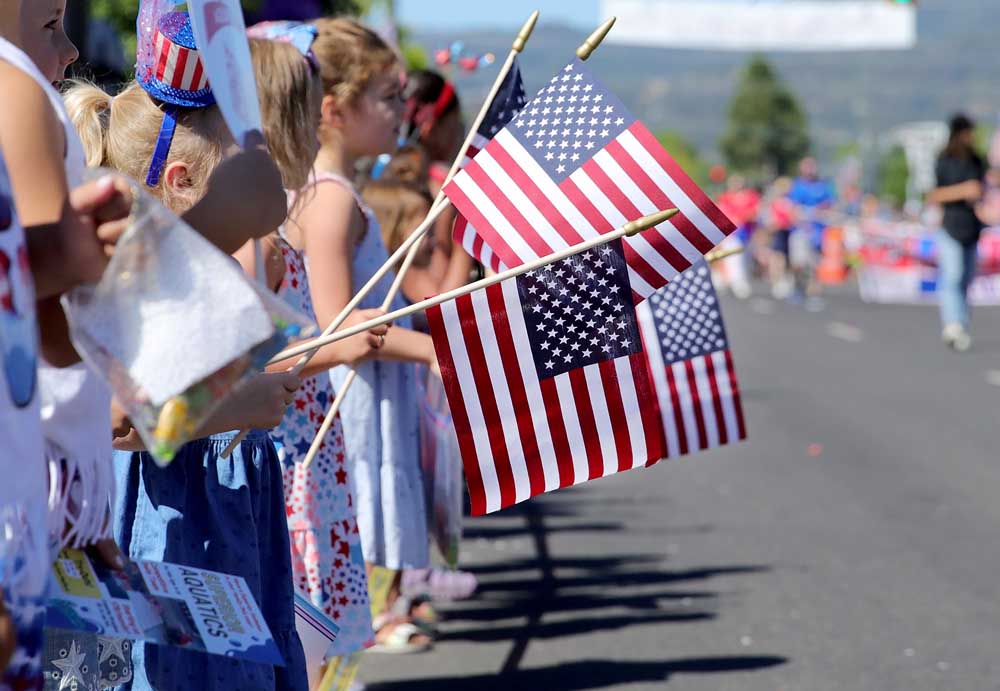THINKING OUT LOUD: Determining rank when the choices stink
Published 5:00 am Friday, October 25, 2024

- Galvin crop
In preparation of a major contested event that has been waged heatedly across the country the past few months (oh no, he’s going down this road again), I have conducted my own experiment in Ranked Choice Voting.
The contest in question is, of course, the World Series — Major League Baseball’s grande finale to determine the championship team of a “world” that not only excludes squads from other planets, but those from countries beyond the United States … except for Toronto.
It’s a small world, after all.
The best-of-seven series will be played out fittingly across the fields of Los Angeles and New York — two cities which have long considered themselves far more worthy of significance than other American municipalities.
And Toronto.
The playoffs began earlier this month with 12 of baseball’s 30 teams emerging from the primary season of 162 games. For those who favor franchises based in Seattle, San Francisco and Oakland, it’s a matter of waiting until next year.
Except, that is, for Oakland, as that team will be taking the scenic route to their eventual home in Las Vegas by playing the 2025 season in Sacramento.
For fans of the Mariners, Giants and A’s — and, in my case, the Red Sox of Boston — having our hopes for a successful campaign suspended provided an opportunity to begrudgingly rank the remaining teams in terms of which we would most like to see lay claim to world domination.
As a side benefit, this could help us better understand Ranked Choice Voting (RCV), which would be instituted for federal and state elections in Oregon should Measure 117 pass next month.
RCV already exists in a few Oregon counties and, in case you don’t follow such things, the Academy Awards.
The Oscar race, though, also depends on multimedia campaigns, a huge financial boost by supporting corporations, and how popular the nominees are among those with ballots to cast — so, in that way, it is a far, far different battlefield that political elections.
He said, rolling his fingers and crossing his eyes … wait, reverse that.
Reasonable people can argue whether mandating that a winning candidate eventually receive, through ranked-choice, more than 50% of the vote is necessary. If you have a half-dozen candidates for an office — or 10 films up for Best Picture — shouldn’t the one who gets the most votes win?
The argument is more complicated than that, obviously, which is why the text of the measure — which can be found on the state’s online voter’s guide — is divided into 20 sections, 31 subsections, and .. well, frankly, I lost count of how many subsection paragraphs, subsection subparagraphs and amendments.
Way back when, in a place where my Red Sox fandom made more sense, I worked at a paper with a bitingly astute political reporter named Nancy Newcombe — who took it upon herself every election cycle to painstakingly decipher the gobbledygook presented to voters and craft a translated “Ballot in English.”
I suspect Nancy, who has long-since departed this world and its trivial matters, would take a look at Measure 117, fire up a heater, place her two-finger glass before her and say … “Nope, not this time.”
Which is why — bereft of a bottle in front of me or a frontal lobotomy — I decided to practice the practicality of RCV on the road to the World Series.
I ranked my preferences for the eventual champion from 1 to 13, beginning with Kansas City and making my way through Detroit, Baltimore, Cleveland, San Diego and so on. As each was eliminated, my rooting interest adjusted to compensate.
You might notice that there were but 12 teams in the postseason, yet my preferences go all the way to 13. That’s because after hitting No. 9 (the Houston Astros), I inserted an outcome of my own that I’d like to see rather than crown either the Mets (since vanquished), Yankees or Dodgers.
My heart now lies with Giant Meteor … which, when you think about it, might be the probable No. 2 pick if we had Ranked Choice Voting in this year’s other upcoming popularity contest.










